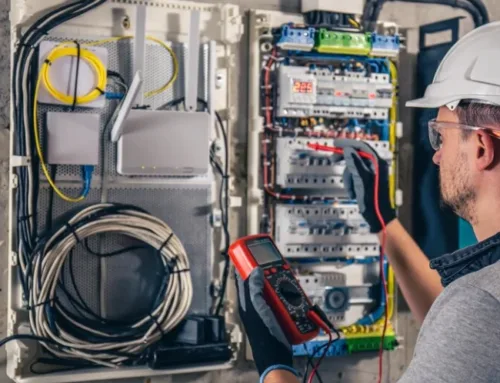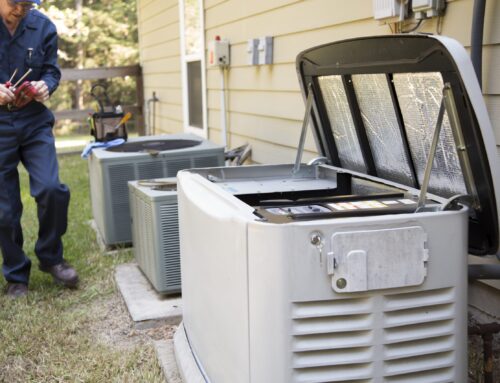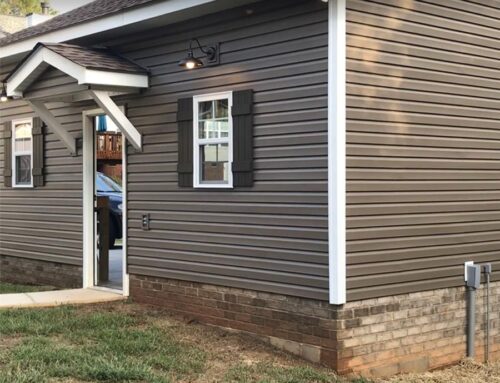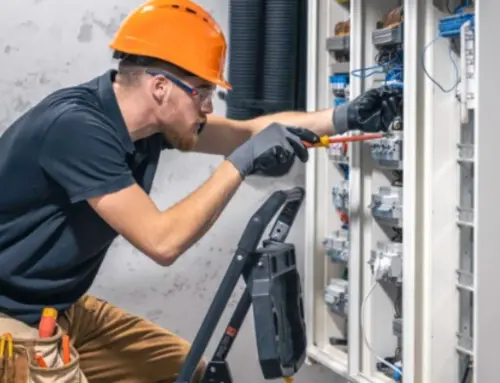When it comes to tackling DIY electrical projects around the house, many of us are tempted to channel our inner handyman or handywoman. However, it’s crucial to remember that electrical work can be hazardous, and even a seemingly simple mistake can lead to serious accidents or fires.
What are some common mistakes people make with electrical safety?
Before you start any electrical DIY project, it’s essential to be aware of the common mistakes people make when dealing with electricity. By recognizing these pitfalls, you can avoid them and keep yourself safe.
 Overloading Circuits: One of the most prevalent mistakes is overloading circuits. Plugging too many devices into a single outlet or circuit can cause overheating and potential fires. Always distribute your electrical devices across multiple outlets or circuits to prevent overloads.
Overloading Circuits: One of the most prevalent mistakes is overloading circuits. Plugging too many devices into a single outlet or circuit can cause overheating and potential fires. Always distribute your electrical devices across multiple outlets or circuits to prevent overloads.- Ignoring Grounding: Failing to ground electrical appliances and outlets is another common error. Grounding provides a safe path for electrical faults to follow, reducing the risk of electric shock. Ensure all appliances and outlets are properly grounded.
- Not Turning Off the Power: It might seem obvious, but many DIY enthusiasts forget to turn off the power before working on electrical projects. Double-check that the power is off at the circuit breaker or fuse box before starting any work.
- Using Incorrect Wiring: Using the wrong type of wiring for a project can lead to a range of problems, from equipment damage to electrical fires. Always use the appropriate wires for your specific application and consult an electrician if you’re uncertain.
- Neglecting Insulation: Inadequate insulation can expose wires to moisture and physical damage, increasing the risk of electrical shocks and shorts. Make sure all wiring is properly insulated and protected.
What are the safety electrical devices to avoid accidents?
Electrical accidents can happen unexpectedly, but there are safety devices designed to minimize the risks. Here are a few essential ones to have in your toolkit:
- GFCI Outlets: Ground Fault Circuit Interrupter (GFCI) outlets are crucial in areas prone to moisture, such as kitchens and bathrooms. They quickly cut off power if they detect a ground fault, reducing the risk of electrical shock.
- AFCI Breakers: Arc Fault Circuit Interrupter (AFCI) breakers protect against electrical fires by detecting abnormal arcs in the electrical circuit and shutting off power.
- Circuit Breakers and Fuses: These are your first line of defense against electrical overloads and short circuits. Make sure your circuit breakers and fuses are properly sized for your circuits.
- Outlet Covers: Simple outlet covers can prevent children or pets from tampering with electrical outlets, reducing the risk of accidents.
What is the most common cause of electrical accidents?
While electrical accidents can occur due to various factors, one of the most common causes is human error. This includes mistakes like those mentioned earlier, such as overloading circuits, neglecting safety precautions, or using faulty equipment.
Another prevalent cause is DIY enthusiasts attempting projects beyond their skill level or without adequate knowledge. Inexperience can lead to incorrect wiring, poor insulation, and other dangerous mistakes.
What are the electrical safety tips?
Now that we’ve covered common mistakes and safety devices let’s explore some practical electrical safety tips:
- Educate Yourself: Before embarking on any electrical project, educate yourself about the specific tasks and safety precautions required. Consider taking a DIY electrical safety course or consulting with an electrician.
- Turn Off the Power: Always turn off the power at the circuit breaker or fuse box before working on electrical outlets, switches, or appliances. Use a voltage tester to confirm that there is no live electrical current.
- Use the Right Tools: Ensure you have the appropriate tools and equipment for the job. Cheap or worn-out tools can be dangerous and lead to accidents.
- Wear Proper Safety Gear: Safety should be your top priority. When working with electricity, wear insulated gloves, safety goggles, and non-conductive footwear to protect yourself from electrical shocks.
- Inspect Regularly: Periodically inspect your electrical system for signs of wear, damage, or loose connections. Address any issues promptly to prevent accidents.
What are the electrical safety rules?
In addition to specific safety tips, there are some overarching rules that DIY enthusiasts should follow to ensure electrical safety:
- Follow Codes and Regulations: Familiarize yourself with local electrical codes and regulations. These guidelines are designed to keep you and your home safe. Non-compliance can result in unsafe conditions and legal consequences.
- No Shortcuts: Avoid taking shortcuts or improvising when it comes to electrical work. Follow established procedures and best practices to ensure a safe outcome.
- Ask for Help: Don’t hesitate to seek professional assistance when needed. If you’re unsure about a project’s complexity or safety, consult with a licensed electrician.
How do you ensure electrical safety at home?
Ensuring electrical safety at home involves regular maintenance, vigilance, and a commitment to best practices. Here are some steps to help you maintain a safe electrical environment:
- Schedule Inspections: Arrange for periodic electrical inspections by a qualified electrician to identify and address potential issues before they become hazards.
- Update Wiring: If your home has outdated or deteriorating wiring, consider investing in rewiring to bring it up to modern safety standards.
- Label Circuits: Properly label your circuit breakers or fuses to make it easy to identify and isolate specific circuits during emergencies.
- Practice Caution: Teach your family members about electrical safety and ensure they know what to do in case of an electrical emergency.
In conclusion, electrical safety is paramount when it comes to DIY projects involving electricity. Avoid common mistakes, invest in safety devices, and adhere to safety tips and rules to protect yourself, your loved ones, and your home from potential electrical accidents. By prioritizing safety and staying informed, you can confidently tackle electrical projects while minimizing risks and ensuring a safer living environment.
Choose Starnes Electric LLC for Professional Electrical Solutions
While DIY projects can be satisfying, it’s crucial to recognize when it’s time to leave electrical work to the experts. At Starnes Electric LLC, we offer a professional and reliable approach to electrical safety, ensuring that your home remains hazard-free and your projects are completed with the highest level of expertise.
The Benefits of Professional Electrical Services
By opting for professional electrical services from Starnes Electric LLC, you gain several benefits:
- Safety Assurance: Our professionals ensure that your electrical systems are safe, minimizing the risk of accidents or fires caused by faulty wiring or installations.
- Peace of Mind: With our expertise, you can trust that your electrical projects will be completed correctly and efficiently, giving you peace of mind and saving you time and money in the long run.
- Increased Property Value: Properly installed and maintained electrical systems not only enhance your safety but also add value to your property. Should you decide to sell your home, having an electrical system in top condition is a significant selling point.
- Energy Efficiency: Our services can also help you optimize your electrical systems for energy efficiency, potentially reducing your utility bills over time.
Call Us Today!
Don’t compromise on electrical safety. Choose Starnes Electric LLC for all your electrical needs. Whether you’re facing an electrical emergency, planning a home renovation, or simply need a routine safety inspection, our team is here to provide professional, reliable, and safe electrical solutions.
Reach out to us today for a consultation and experience the peace of mind that comes with entrusting your electrical projects to experts!





